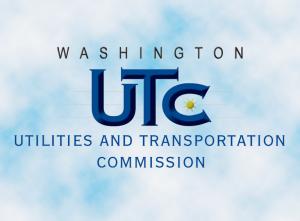Washington OKs Utility Transfer for Recreational Use

The Washington Utilities and Transportation Commission has agreed with an electric utility’s assertions that it may lawfully grant a license for use of utility-owned land for purposes of public recreation, with no associated rate-making or accounting treatment necessary since the utility, Puget Sound Energy (PSE), will not be transferring any actual ownership interest in real property. At issue are certain right-of-way (ROW) corridors held by the utility in King County, which county had requested authority to manage and use the ROWs for public recreational purposes.
According to the petition submitted by PSE, the properties will be made available to the public solely for recreational use and only to the extent that such use is consistent with and subordinate to current and future utility uses. As envisioned by the utility, the license it awards King County will require the county to maintain public recreational trails thereon.
In asking for approval of the arrangement and seeking advice on any accounting conventions required as a result, PSE pointed out that in the past, it had taken a different approach to facilitating public recreational use of its properties. Its prior practice typically involved the grant of a longterm temporary easement to entities like King County, the company said.
The utility added that at one time it also had sought to give the State of Washington some of the company’s land for recreational purposes, reserving an easement for utility uses. As related by PSE, in that earlier instance, it had proposed that the commission tr
eat the transaction as a donation and calculate any gain based on the net charitable contribution tax benefits PSE would receive in return.Commission staff, however, had deemed the transaction to be a transfer of property for rate-making purposes, such that any net gain should be based on the fair market value of the property. The utility later withdrew its proposal and declined to make the donation.In the instant case, PSE highlighted the different circumstances of the ROW transfer, but nevertheless requested guidance from the commission as to accounting and rate-making consequences. It averred that it needed certainty on such matters in order to move the deal forward. More specifically, the utility asked the commission to declare that PSE’s grant of a license to King County to manage company property for recreational purposes requires neither commission approval nor special accounting treatment for rate-making purposes.
In making its case, the utility maintained that the license will not result in either financial gain or loss to the company or its ratepayers. Moreover, PSE cited its continued ability to use its property and ROWs for operational purposes without any limitation. In concurring with the company’s arguments, the commission
determined that the transaction as proposed by PSE would not constitute a transfer of property per se as defined under the state utility code. In support of that conclusion, the commission said that the Washington Supreme Court has stated that “[a] license authorizes the doing of some act or series of acts on the land of another without passing an estate in the land and justifies the doing of an act or acts which would otherwise be a
trespass.”The commission found that PSE’s proposed grant of a license to King County clearly fell within the court’s prescribed parameters in that the authority accorded the county for the public to use the company’s land for recreational purposes would come without any conferment of any ownership right or real property interest.The commission observed that the planned license arrangement is easily distinguished from the other means by which PSE has allowed the public to access its transmission corridors in the past, inasmuch as a license differs from an easement in several ways. Most notably, the commission pointed out, a license is revocable and nonassignable and does not exclude possession, either wholly or partially, by the owner of the servient tenement.
Neither, the commission said, is a license comparable to the donation of land PSE had once considered and ultimately decided against in the earlier case involving the transaction with the state. Again, the commission emphasized that under the license agreement with King County, the utility will retain ownership and possession of the property and will merely allow recreational use subordinate to the company’s own use of the land for utility operations.
As to the need for special accounting treatment, the commission ruled that an electric company must account for gains and losses it realizes from its public utility operations as part of the regulated rate-setting process. However, having concluded that the proposed license will not result in a financial gain or loss to PSE or its ratepayers, the commission held that the license does not require separate rate-making accounting treatment. Re Puget Sound Energy, Docket U-180068, Order 01, Mar. 6, 2018 (Wash.U.T.C.).



